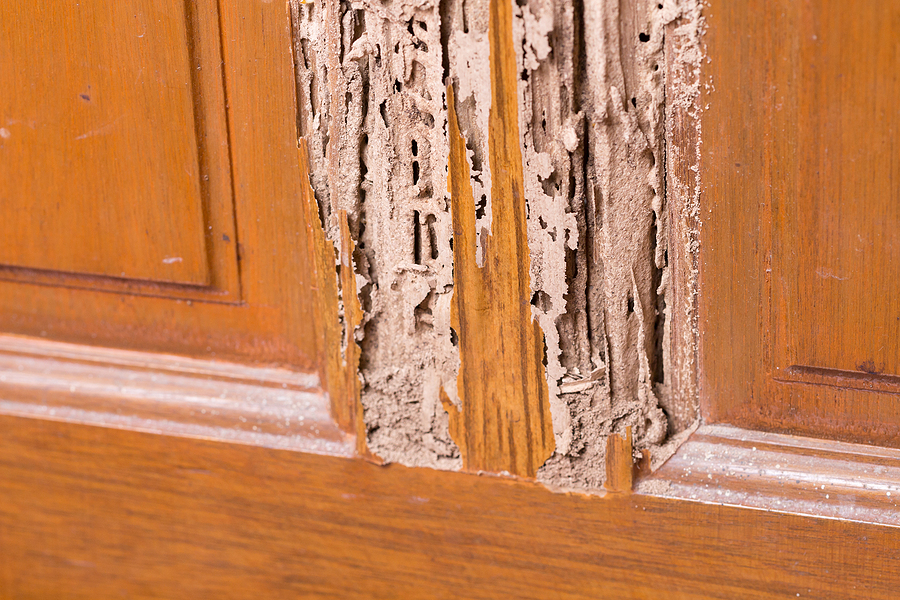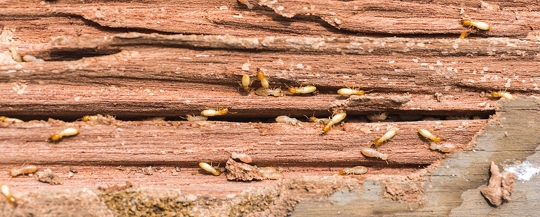Log cabins have rustic charm, natural appeal, and often evoke a sense of timeless beauty and tranquility. Whether your log cabin is a short-term rental, a get-away vacation spot, or a second residence, log cabins can be pleasant estates. However, beneath their charming exterior lies a potential threat that can compromise your log cabin’s structural integrity—subterranean termites. These insidious pests, common in South Carolina, Georgia, and the Southeast, pose a significant risk to log cabins due to their ravenous appetite for wood.
Understanding the susceptibility of log cabins to termite damage and the critical role of professional termite control in managing this risk is essential for preserving the safety and longevity of your cabin.
Why Are Log Cabins Particularly Susceptible to Termites?
Log cabins are inherently more vulnerable to termite infestations compared to traditional wood-frame houses. This increased weakness is due to several factors:
- Wood Composition: Termites primarily feed on cellulose, a major component of wood. Since log cabins are constructed entirely of logs (not just wooden frames), they provide an ample food source for these pests. The natural wood used in log cabins, often if untreated, is particularly attractive to termites.
- Moisture Levels: Termites thrive in environments with high moisture levels. Log cabins, especially those in wooded or damp areas, can experience elevated humidity, which creates a conducive environment for termites to thrive.
- Direct Ground Contact: In many log cabin designs, logs may be in direct contact with the ground or soil. This proximity to the earth makes it easier for termites to access the wood from beneath, bypassing some of the typical barriers that might protect other wooden structures.
- Wood-to-Wood Contact: The interconnected nature of logs in a cabin means that once termites infiltrate one log, they can quickly spread to adjacent logs and amplify the damage.
Why Professional Termite Control is Essential
Given the specific challenges posed by termites to log cabins, it is crucial to enlist professional termite services to protect your treasured wooden beauty. At Compass Pest Management, you can have peace of mind knowing that we provide:

- Expert Identification and Treatment: Compass has the expertise to accurately identify termite species and catch these insects before they inflict too much damage. We use specialized tools and techniques to detect termite activity and structural susceptibility.
- Effective Treatment Plans: Pest control professionals at Compass have access to advanced treatments and methods that go beyond over-the-counter solutions. Compass uses Termidor, the top-of-the-line liquid termiticide, designed to effectively eliminate termites for years and prevent future infestations. Compass regularly uses a machine that injects the termiticide deep within the soil.
- Prevention Strategies: Beyond treatment, Compass Pest Management professionals provide valuable advice on preventive measures. They can recommend ways to reduce moisture levels around your cabin, suggest treatments to protect the wood, and offer guidance on maintaining the structural integrity of the cabin to make it less appealing to termites.
- Long-Term Protection: Compass will offer follow-up services each year to ensure that your log cabin remains protected. This long-term approach is essential for safeguarding your investment and avoiding recurring problems.
- Safety: Handling all pest control substances, especially advanced liquids used for termites, requires caution. Professionals at Compass Pest Management are trained to apply these substances safely and effectively, minimizing risks to your health, your pets, and the environment.
Hire A Professional At Compass Pest Management
Termites present a significant threat to log cabins, given their natural affinity for wood and the environmental conditions that often accompany these rustic homes. The unique vulnerabilities of log cabins necessitate a proactive and expert approach to termite control. Hiring a professional pest control company like Compass Pest Management ensures that your log cabin receives the most effective treatment and preventive measures available. By addressing termite issues promptly and professionally, you can preserve the beauty and structural integrity of your cherished log cabin for years to come. Call Compass Pest Management for a free inspection and estimate today.The post The Importance of Professional Termite Control for Log Cabins: Understanding Termite Susceptibility appeared first on Compass Pest Management.

